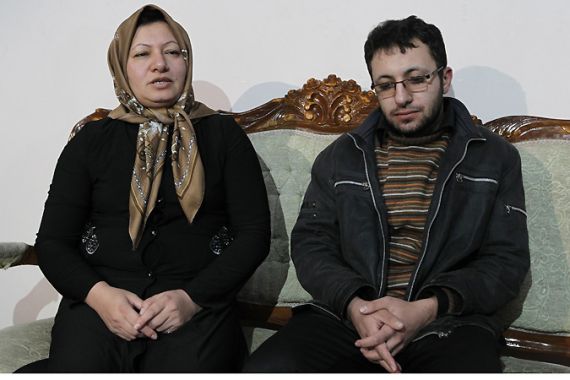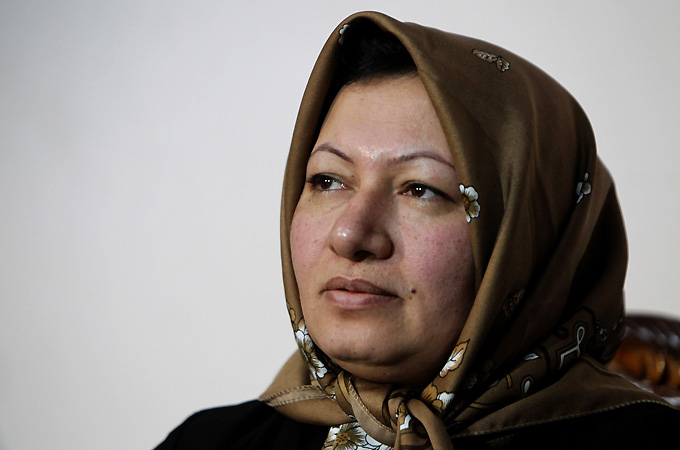Iranian pleads for mother’s life
The son of the Iranian woman convicted to death by stoning hopes for a less harsh sentence for her crimes.

 |
| Ashtiani was first sentenced to hang for her husband’s murder and later to be stoned to death for adultery [AFP] |
The son of an Iranian woman sentenced to death by stoning for adultery has appealed for his mother’s sentence to be commuted.
“I have said that I do not think that my mother is innocent. She is certainly guilty,” Sajjad Qaderzadeh, son of Sakineh Mohammadi Ashtiani, said on Saturday.
“However, the decision has to be made by our country’s officials. They may change the stoning sentence to some other verdict.”
Speaking from Tabriz, in northwestern Iran, Qaderzadeh told foreign media his mother had violated Islamic law, but called for compassion and forgiveness.
Ashtiani was allowed out on prison leave to have dinner with her daughter and son on Saturday, hours after he had appealed to the judiciary to spare her life.
Journalists were allowed to meet her briefly the same day, when she again confessed to being an accomplice in the murder of her husband, while maintaining that it was her lover who did the actual killing.
“In my opinion my mother is also guilty but since we have lost our father we do not want to lose our mother too. Consequently, we ask for a commutation of the penalty,” Qaderzadeh said.
Qaderzadeh was arrested in October after he discussed his mother’s case with two German journalists, who were taken into custody for having entered the country on tourist visas but working as journalists.
He was freed on a $40,000 bail on December 12, but the journalists remain in custody.
Ashtiani further said that she advised her son to sue the German journalists, who “embarrassed” her.
“I want my voice to be heard. I want to complain about the German reporters who made this case even more complicated and worsened my situation,” Ashtiani said.
She also denied ever having been tortured during her time in prison, as had been alleged by her former lawyer.
Condemned to death
Ashitani has been sentenced to death twice. The first court decision to hang her for the murder of her husband was commuted to a 10-year jail sentence by an appeals court in 2007.
She was later condemned to die by stoning for adultery, a sentence which was upheld by another appeals court.
In the face of international outrage the sentence was suspended and is under review by Iran’s supreme court, but she still faces possible execution.
It was not immediately clear when Ashtiani would return to prison.
“The stoning sentence is on the file but it may not be carried out. At least this is what we are hoping,” Qaderzadeh added.
Stoning was widely imposed in the years following the 1979 Islamic revolution, and even though Iran’s judiciary still regularly hands down such sentences, they are often converted to other punishments.
The last known stoning was carried out in 2007, although the government rarely confirms that such punishments have been meted out.
Under Islamic rulings, an adulterer is usually buried up to his waist, while an adulteress is buried up to her chest with her hands also buried.
Those carrying out the verdict then throw stones until the condemned dies.